Four Decades Forward: SPH Celebrates 40th Anniversary
MED offshoot now an international leader in research, graduate education
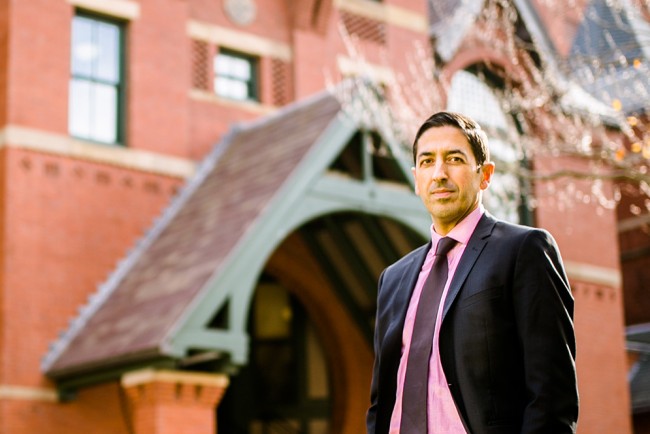
When the School of Public Health launches a yearlong celebration of its 40th anniversary tonight, it will be celebrating one of Boston University’s great success stories. The school has grown from a small department within the School of Medicine to become an international leader in graduate education and research, placing 10th in the most recent U.S. News and World Report rankings.
By all accounts, the appointment of Sandro Galea as dean has been a shot of adrenaline for the SPH graduate study and research programs and interdisciplinary degrees. Over the past 12 months, he has overseen structural and curriculum changes designed to keep pace with a changing world and ensure that SPH continues to graduate students who “are actually the doers in public health,” as Galea, whose long résumé includes a stint in Somalia with Doctors Without Borders, puts it.
In addition to tonight’s kickoff celebration for the SPH community at Boston’s Algonquin Club, the school is marking its anniversary with a symposia series, regional and global receptions around the country, a photo contest, and a gala dinner scheduled for November. The anniversary reflects a story of determination, creativity, and being a major force for change, from environmental threats to patients’ rights.
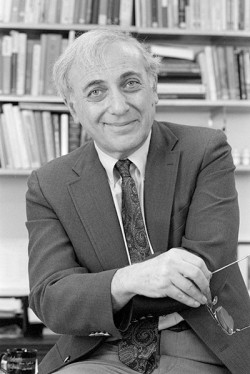
SPH was established in 1976 as a program within MED’s sociomedical sciences and community medicine department, with an initial class of 54 master of public health students and 20 nondegree students. Initially the school’s curriculum was practical rather than theoretical, with classes scheduled for only Tuesday, Wednesday, and Thursday evenings, so those with full-time jobs could attend. The first students were almost exclusively health professionals seeking to further their education. At the time, there were only two concentrations: Health Delivery Systems and Health Research and Evaluation.
“At first, the people we attracted were nurses, doctors, hospital administrators, and people who worked in public health,” says Leonard Glantz (CAS’70, LAW’73), an SPH professor emeritus of health law, bioethics, and human rights. “And most people in public health were not trained in public health; they were trained in sociology or political science or nursing.”
At the start “it was like a mom and pop operation,” recalls Theodore Colton, chair of the epidemiology and biostatistics department from 1980 to 1999. Trained at the Johns Hopkins School of Public Health, Colton arrived at BU just as the school was preparing for its first accreditation visit. He says the founding dean, Norman A. Scotch (CAS’51, GRS’52), was “a great gambler in terms of the idea of a school of public health.” Scotch had previously been head of MED’s sociomedical sciences program and is credited with guiding SPH through the accreditation process at a time when Boston’s only graduate school of public health was at Harvard. Today, the school bestows an annual teaching award in his name to an SPH faculty member who has made an “outstanding and sustained contribution to the education program.” Scotch died in 2014, at age 86.
SPH’s first graduating class, in 1979, was a small group of 46 master’s students, all part-time. Last year, the school awarded 1,078 degrees to students from 43 countries (the first international student was accepted in 1981), with master’s or doctoral degrees in epidemiology (the school’s first PhD program, started by Colton), biostatistics, environmental health, epidemiology, and health policy and management and master’s programs in global health, health law, bioethics, and human rights, maternal and child health, and social and behavioral sciences. The school also offers a PhD program in leadership, management, and policy, as well as dual degrees with other schools: MED, the School of Law, the School of Social Work, the College of Arts & Sciences, the Questrom School of Business, and Sargent College of Health & Rehabilitation Sciences.
Informing drunk-driving laws, patients’ rights, legal health proxies
Much of that growth is attributed to Robert Meenan (MED’72, Questrom’89), who served as dean for 21 years, stepping down in 2014. Under Meenan’s watch, the school expanded dramatically. He guided SPH’s move from MED to its current home in the Talbot Building, overseeing the renovation of the historic former hospital to house the school. “It was the first time all the SPH faculty were together in one building,” says Glantz.
As well, Meenan instituted a practicum requirement for master’s students. “Meenan was very businesslike,” says George Annas, a William Fairfield Warren Distinguished Professor, an SPH professor of health law, policy, and management, a MED professor, and a LAW professor, “but he always remembered that we’re an academic institution.”
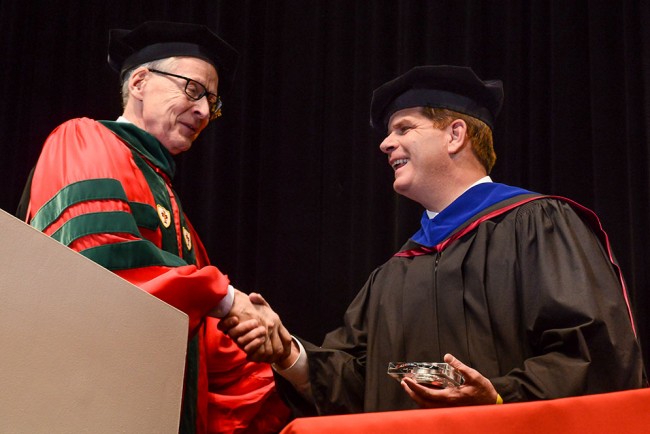
SPH earned full accreditation from the Council on Education for Public Health in 1983, and graduated its first doctoral candidate in 1985. Today, as it continues to send public health professionals into the field, SPH is a research leader at the forefront of major studies, including the sweeping, historic Framingham Heart Study, the Black Women’s Health Study, and the New England Centenarian Study, as well as important studies on gun violence, and recently, on e-cigarettes. Faculty in six departments—biostatistics, community health sciences, environmental health, epidemiology, global health, and health law, policy and management—conduct research that contributes to public health policies around the world.
Those who associate the public health field only with preventing communicable diseases might be surprised to learn that it was SPH research that informed the nation’s drunk-driving laws and led to the institution of patients’ rights and the establishment of legal health proxies. As a profile in the January 2016 edition of the venerable medical journal The Lancet notes, “BU SPH brought attention to physical disability as a public health problem, contributed to the understanding of the effects of environmental toxins in conditions such as Gulf War syndrome, and was the catalyst for international reconsideration of the value and ethics of placebo-controlled trials.”
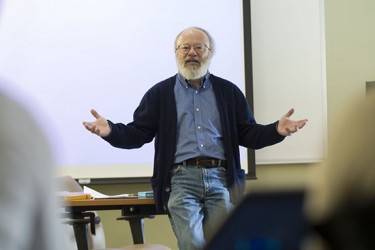
“For all of the school’s growth over the last four decades, I think what’s been remarkable is our ability to stay true to our core mission: producing top-tier scholarship that maintains a deep commitment to improving the health of populations, particularly vulnerable populations, locally and globally,” says Galea, who succeeded Meenan as dean. “We will continue to reshape our research and curriculum to meet new challenges, but we’ll never abandon an approach rooted in real-world education and practice. That’s what has distinguished us in the past, and that’s what will allow us to continue to grow.”
Annas, who, like Glantz, has a law degree, notes that at the time SPH was evolving, there was “an outbreak of hospital regulations, and the sense that there were people who needed to know about these things, none of which were taught in medical school.” In defining its mission, SPH had to “not be like Harvard; that was easy,” says Annas. “Harvard was a great international school of public health, but not one focused on local public health.”
“Our students tend to be idealistic, and they come to a place that supports their idealism, a place where they have role models and support systems,” says David Ozonoff, an SPH professor and chair emeritus of environmental health, who headed the department from 1977 until 2003 and directed SPH’s Superfund Research Program for 20 years.
Choosing to work in the trenches rather than climb the corporate ladder
A look at SPH’s earliest catalogues, which Colton has stashed in his office, show him along with Glantz, Annas, and Ozonoff as scruffy young academics with long hair and beards. “I went to medical school in the ’60s, when public health was a very low-status specialty,” says Ozonoff. “If you said you were going into public health, it meant you’d be in the South Bronx reading TB screens for the rest of your life.” But like so many of his peers at that time, Ozonoff was an anti-war and civil rights activist (he organized a group of physician draft resisters), and public health spoke to his values. SPH beckoned to students and faculty who were eager to work in the trenches rather than climb the corporate ladder.
Ozonoff was invited by Scotch to launch the environmental health program, and his first task was to establish a basic curriculum. “There was no department; it was called a section, and I taught everything. I also wanted to do research, so the question was, what’s going to be the nature of this department,” Ozonoff says. “The occupational part of this thing was closed off, because there was Harvard, which had very good occupational health program, and you don’t get in the same niche with a giant. What they weren’t doing was environmental and community stuff, so I said that we’re going to concentrate on working with communities that have their air and water contaminated by big business. That suited my politics perfectly. And we were the only ones doing that.”
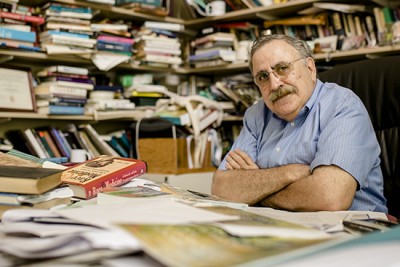
It turned out, he says, that “there were a lot of top-notch, smart young people who wanted to do this, too, and could have gone anywhere, but they came to us because we had something the other places didn’t—the opportunity to make their life and their politics whole.”
The SPH website describes the school’s mission thus: “to improve the health of populations locally, nationally, and internationally, with a special focus on the disadvantaged, underserved, and vulnerable.” Through education and research, the school seeks to make a needed difference in the real world.
Today, the school is on the cusp of the “next leap forward,” says Glantz. “We have a new dean who’s a real public health visionary.” Galea, who has already effected change on many levels, has been commended by colleagues like Glantz and Annas for his decision to combine two departments last September—health law, bioethics, and human rights and health policy and management—to create the health law, policy, and management department. The new department, Galea says, will be at “the forefront of the global scholarly conversation about the role of laws, policies, and health systems in shaping the health of the public.”
“He believes in the social determinants of health,” Glantz says. “And that poverty matters,” adds Annas. And SPH continues to attract students who share these concerns. “What we’re most proud of is what our students do,” Glantz says. “We have graduates in state government, city government, federal government, and all over the world doing all sorts of important and interesting work. People don’t come to SPH in order to become rich or famous. They are people who are dedicated to communities, and we give them the skills to be effective.”
From Ozonoff: “It’s not a school for prima donnas.”
This BU Today story was written by Susan Seligson, Senior Writer for BU Today and Bostonia.